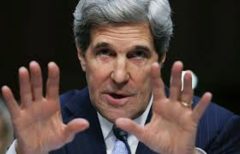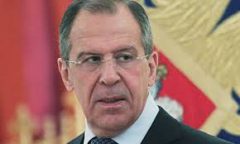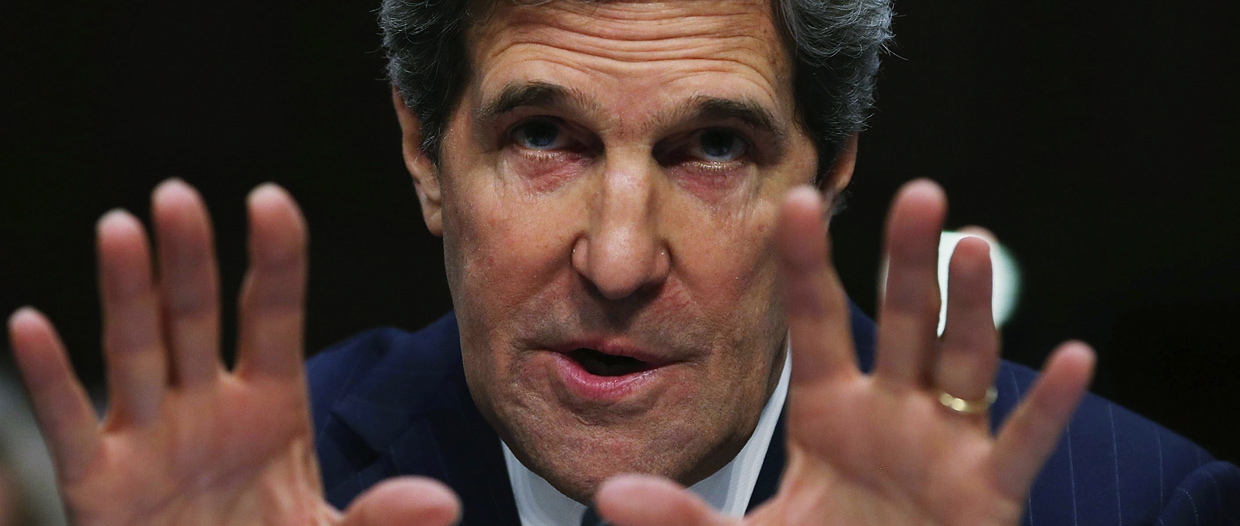It would be foolhardy to cast aspersions on the recent agreement reached by the United States and Russia to dismantle and destroy Syria’s formidable arsenal of chemical weapons.
The accord, hammered out by U.S. Secretary of State John Kerry and Russian Foreign Minister Sergey Lavrov in Geneva on Sept. 14 and formalized by the United Nations’ Security Council on Sept. 27, requires international inspectors to “complete elimination of all chemical weapons material and equipment in the first half of 2014.”

No sane person can take issue with an agreement that deprives Syria of such weapons of mass destruction, which were last used against Syrian civilians on Aug. 21 in a ghastly incident that prompted the United States to threaten military action against Syria.
No less a politician than Israeli Prime Minister Benjamin Netanyahu came out in support of the agreement after Kerry briefed him on its details in a meeting in Jerusalem.
Syria, which until very recently denied it even possessed chemical weapons, backed it as well. But can Syrian President Bashar Assad be trusted to fully implement it?
Turkish Prime Minister Recep Tayyip Erdogan may have had a point when he suggested that Assad is only buying time for “new massacres“ in the current civil war, which broke out more than two years ago after the Syrian government resorted to unbridled violence to silence peaceful demonstrations.
Assad already has said he will not honor the agreement unless American allies in the Middle East, principally Saudi Arabia and Qatar, stop arming the rebels and Israel ratifies the Chemical Weapons Convention. It`s extremely unlikely that these demands will be met.
Given the possibility that Assad and his Russian partner may yet find ways to sabotage the agreement, the United States, though committed to diplomacy to resolve this crisis, is keeping open all options, including the threat of military force.

Even if Assad honors it in full, he will emerge as one of the winners.
First and foremost, the agreement does not alter the status quo in Syria by one iota. It empowers Assad, does not weaken his army and strengthens his surrogate, Hezbollah, and his patron, Iran. It also deals a crushing blow to non-jihadist rebels attempting to overthrow the Syrian regime, and enhances Russia`s prestige in the region at the United States`expense.
Although the Israeli government publicly supports the agreement, perhaps under U.S. pressure, Israel cannot be pleased with the indecisive manner in which President Barack Obama handled the crisis. After Syria, how would he deal with Iran, a stronger enemy?
At first, Obama threatened to strike Syria, sending destroyers bristling with Tomahawk cruise missiles to the eastern Mediterranean Sea. By Sept. 1, the United States was poised to launch what Kerry described as a “very limited, very targeted, very short-term” and “unbelievably small attack.”
Having boxed himself into a corner by drawing `red lines` on the use of Syrian chemical weapons, Obama felt he had no alternative but to act. American credibility was on the line.
Facing opposition at home and abroad, particularly in Russia and China, Obama wavered.
In a nifty but politically motivated move, he subcontracted the crisis to Congress, which, after Iraq and Afghanistan, was reluctant to be drawn into another war, this at a time when the U.S. economy is still in recovery mode. Obama, too, was acutely aware that American public opinion opposed a military solution. According to a New York Times/CBS News poll, nearly two-thirds of Americans were against a strike, fearing it would embroil the United States in another costly engagement in the Middle East.
As the crisis unfolded, the Obama administration made much of the fact that Syria had deployed chemical weapons against its citizens, killing more than 1,400 in the suburbs of Damascus last month. Despite Russian claims that the rebels perpetrated the atrocity, a United Nations report implicitly suggests that forces loyal to Assad carried it out.
Weapons of mass destruction, be they chemical, biological or nuclear, are terrible and beyond the pale. But let’s be clear. Less than 2 percent of the more than 100,000 fatalities in the civil war have been caused by poison gas.
What about Syrian civilians who have been butchered by militias and gangs loyal to Assad? What about Syrians who have been killed by artillery shells, missiles and bombs?
Are their deaths of no moral significance because they were not killed by sarin or mustard gas?
These considerations are of little or no value in the wake of the Geneva agreement. Russia is protecting the Syrian regime, its oldest ally in the Arab world, and Assad can rest easier now that the United States has indefinitely called off its much vaunted military strike.
Thanks to Iranian and Russian arms shipments, and Hezbollah’s armed assistance, Assad can continue to prosecute the civil war, and he can do so without chemical weapons and with impunity.
